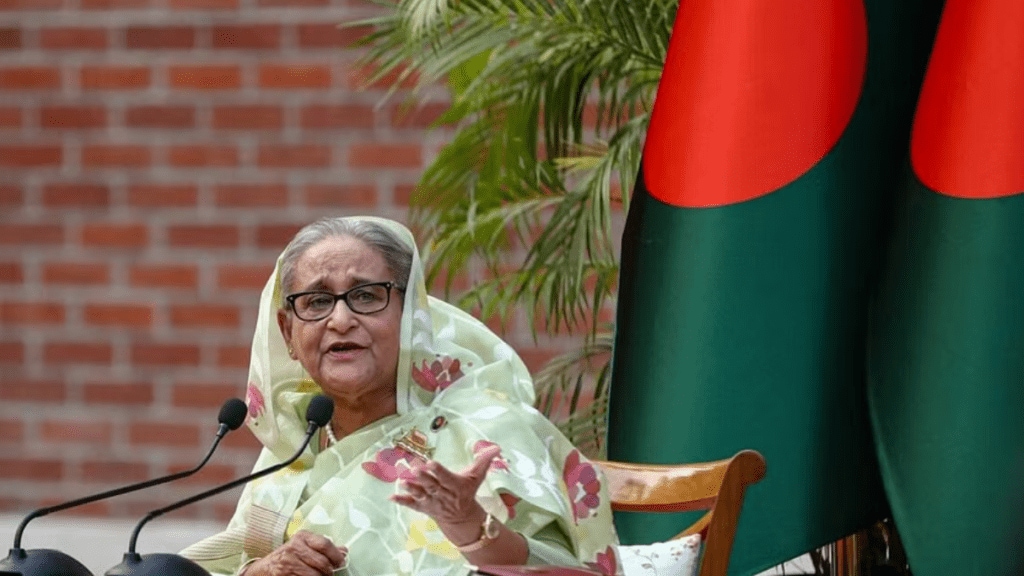Sheikh Hasina‘s top aide has revealed in an interview with Russia Today that a humanitarian agency of the US government and the Clinton family were behind the uprising in the country that led to the former prime minister’s ouster in 2024.
A student-led protest overthrew Sheikh Hasina’s government on August 5, 2024. Following the uprising, Hasina fled to India for safety, while many senior leaders of her party and government were either arrested or went into hiding both in Bangladesh and abroad.
Ex-Minister blames US agencies and Clinton foundation
Mohibul Hasan Chowdhury, a former minister in Hasina’s cabinet, claimed in the interview that the uprising was influenced by foreign forces. He alleged that a network involving the US Agency for International Development (USAID) and the Clinton family played a key role in destabilising Hasina’s regime. Chowdhury also linked several Western NGOs to the interim government now led by Nobel Laureate Muhammad Yunus.
“Certain actions of some NGOs, especially from the US, I mean USAID to name a few, for example, or the International Republican Institute. They were running campaigns against our government for a while, since 2018,” Chowdhury said.
Long-standing nexus between Clinton family and Yunis regime
He further described the 2024 uprising as a “carefully planned” operation, claiming it was part of a long-standing collaboration between Yunus and the Clintons. Chowdhury also pointed to Bill Clinton’s past praise for Yunus and mentioned how the Nobel Laureate was also invited to speak at the Clinton Global Initiative Meeting in 2024.
He added that the ties between Muhammad Yunus and the Clinton Foundation were part of a larger effort to bring political change in Bangladesh, using democracy and development as an excuse. He said that the connection between the Clinton family and the interim government led by Yunus had existed for many years.
The US government, however, strongly rejected these claims and said it had no role in Bangladesh’s political crisis, according to media reports.
After Hasina’s departure on August 5, Muhammad Yunus returned from Paris to take charge of the interim government as the chosen leader of the student protestors. One of his first actions was to dissolve the Awami League until its leaders, including Hasina, were “served justice” for alleged crimes committed during their rule.
Bangladesh’s political scene has since become deeply unstable. With the Awami League barred from political activity, rival groups such as former Prime Minister Khaleda Zia’s Bangladesh Nationalist Party (BNP) and the Islamist party Jamaat-e-Islami are locked in growing internal disputes. The future of the country’s political order remains uncertain as tensions continue to rise.

